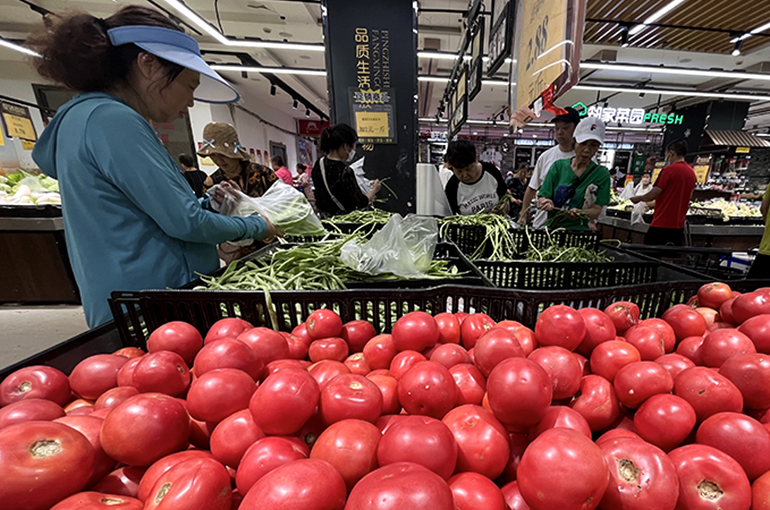 China’s Inflation Rises 0.6% in August, Most Since February
China’s Inflation Rises 0.6% in August, Most Since February(Yicai) Sept. 9 -- China’s consumer inflation rose last month by the most since February, extending gains to a seventh straight month, mainly because of higher food prices resulting from disruptive weather.
The consumer price index rose 0.6 percent in August from a year earlier, the National Bureau of Statistics said today. That was a shade under the 0.65 percent average prediction of 15 China-based chief economists polled by Yicai.
After falling 0.8 percent in January, the CPI climbed 0.7 percent in February, 0.1 percent in March, 0.3 percent in May and April, 0.2 percent in June, and 0.5 percent in July.
Food prices increased for the first time since June last year, rising 2.8 percent, the fastest pace in 19 months, with the cost of fresh vegetables soaring 21.8 percent, up from a 3.3 percent gain in July, the data showed. Non-food prices inched up 0.2 percent, with industrial consumer goods prices down 0.4 percent and service prices up 0.5 percent.
Given that the rapid runup in vegetable prices is unlikely to continue and the downward pressure on industrial consumer goods and service prices is becoming more apparent, the CPI is expected to rise 0.5 percent this month, ending a two-month uptick, Wang Qing, chief macro analyst at Golden Credit Rating International, told Yicai.
Low consumer inflation will remain a major feature of China's economy this half, Wang noted, adding that there is still space to step up anti-cyclical policies.
Factory-Gate Prices
Producer prices, an indicator of corporate profitability, fell in August for the 23rd straight month in a row and by the most since April, mainly because of sluggish demand and falling global commodity prices.
The producer price index fell 1.8 percent last month from a year earlier, compared with declines of 0.8 percent in both June and July, according to the NBS. The headline figure was higher than the 1.39 percent average predicted by the chief economists surveyed by Yicai.
The PPI missed expectations, indicating that demand remained insufficient, the real estate sector had not yet rebounded, and the actual use of special-purpose government bonds was still relatively low, said Bruce Pang, chief economist and China head of research at Jones Lang LaSalle.
Editors: Dou Shicong, Futura Costaglione